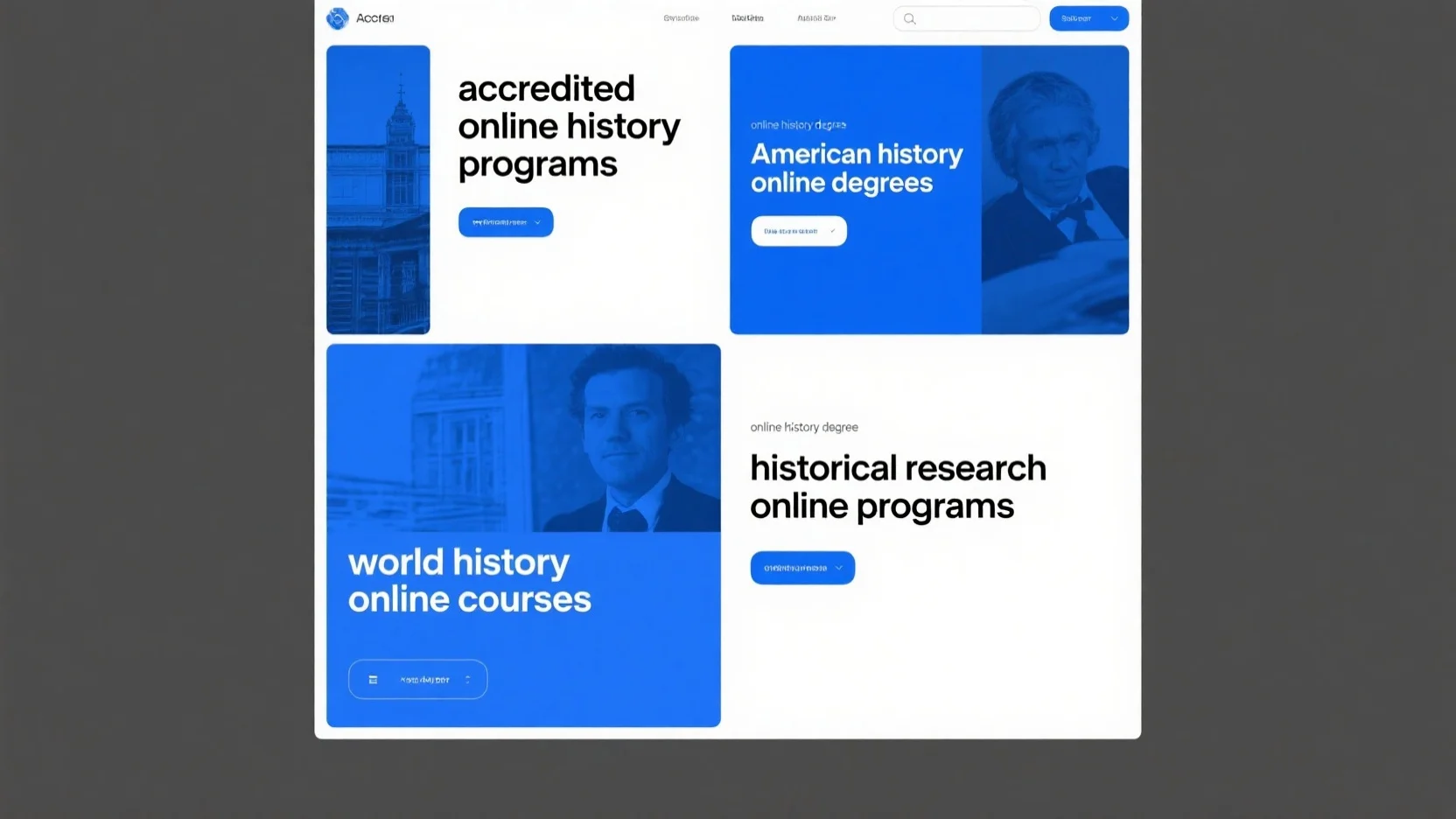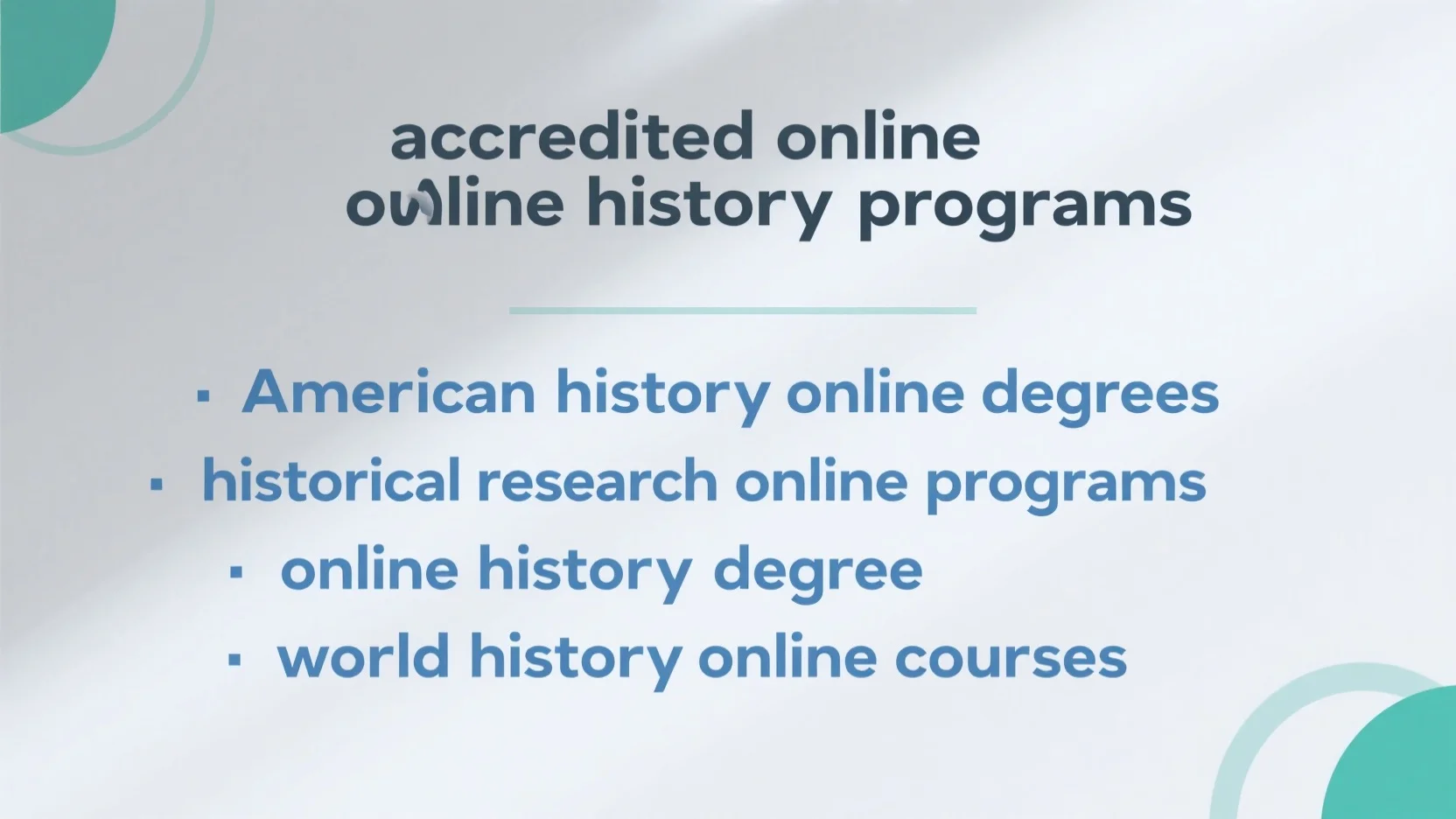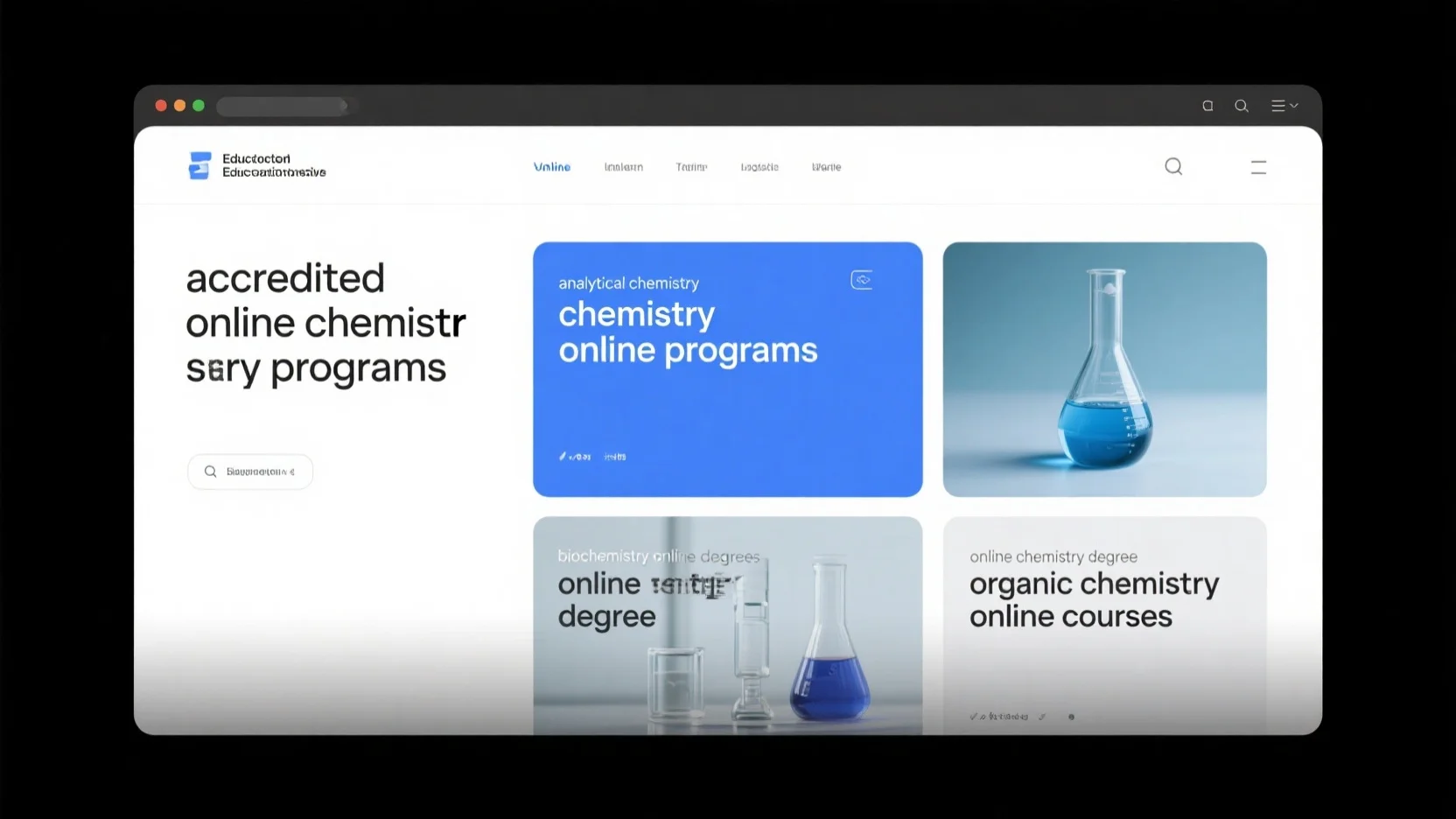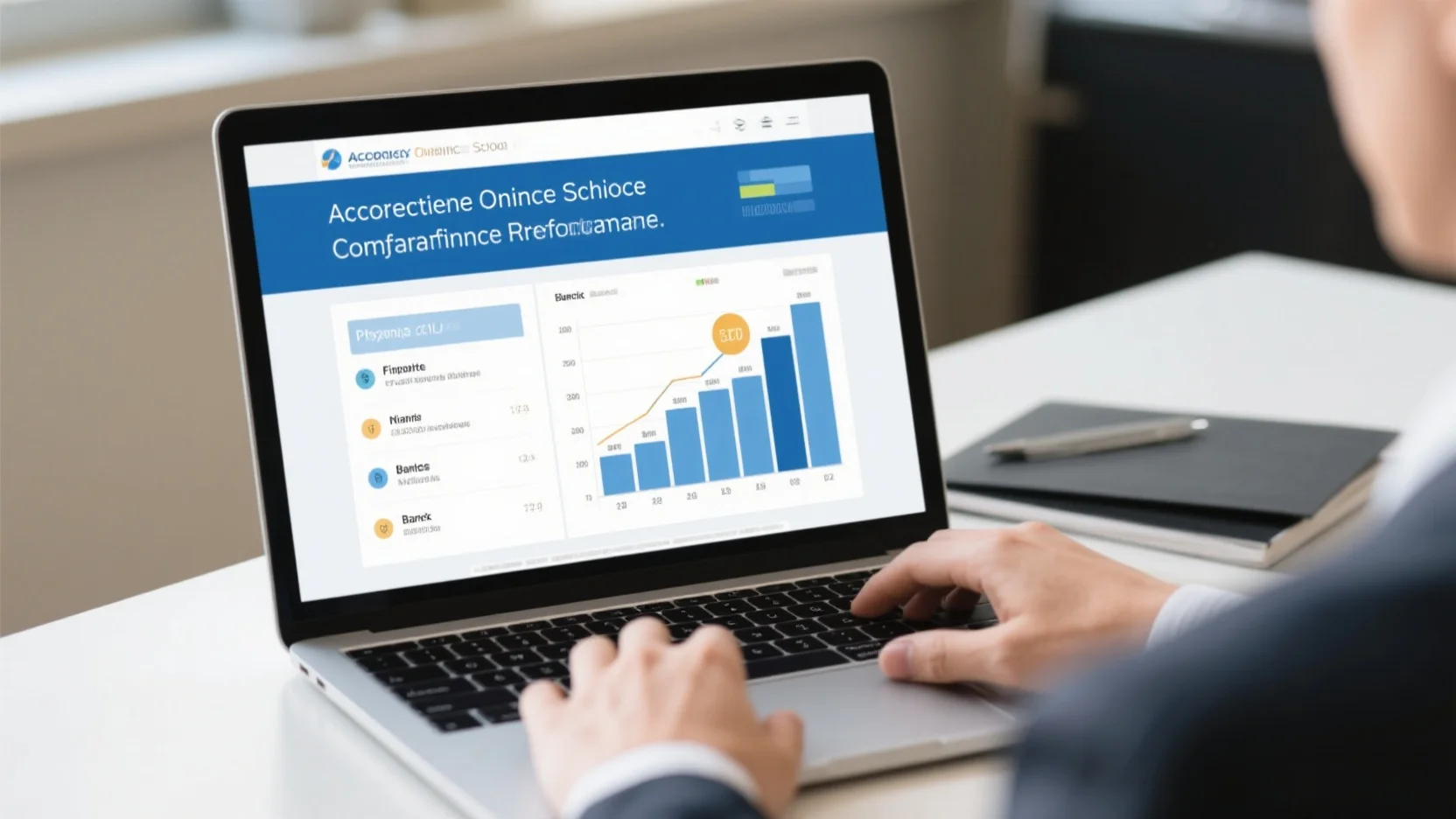In today’s education landscape, online history degrees are a booming option! A recent National Center for Education Statistics report showed that in fall 2022, over 4.9 million US college students took exclusive distance – education courses. A University of the Potomac 2023 study also revealed that 70% of students prefer online classes. If you’re eyeing a premium online history degree over counterfeit models, this is the buying guide for you. We’ve got the best price guarantee and free installation included (metaphorically, as in free access to valuable info). Don’t miss out on enrolling in a top – notch accredited program now!
General information on online history degrees
Online learning in the realm of history has witnessed a remarkable surge in popularity. In the fall of 2022, over 4.9 million college students in the United States were enrolled exclusively in distance – education courses through postsecondary institutions (National Center for Education Statistics). Moreover, 70% of students agree that online classes are better than traditional classroom settings (University of the Potomac 2023 Study). These statistics clearly show that online education is no longer a niche but a mainstream option for students interested in history.
Accreditation of online history programs
Accreditation is a crucial factor when considering an online history degree. We evaluated each school’s program on various factors like tuition costs, admission, retention and graduation rates, faculty, reputation, and the student resources provided for online students. Data was collected from trusted sources such as the National Center for Education Statistics, individual school and program websites, and school admissions counselors. As recommended by educational experts, always opt for a program with proper accreditation, as it ensures that the degree holds value in the academic and professional world.
Pro Tip: Before enrolling in an online history program, check the accreditation status on the U.S. Department of Education’s database. This will help you avoid unaccredited and potentially worthless degrees.
Types of online history degrees (American history, world history)
There are mainly two types of popular online history degrees: American history and world history.
Crucial historical periods
In American history online degrees, courses often cover topics like the founding period of the United States, and also dive deep into American foreign policy since WWII. For example, students will explore how the decisions made during these historical periods have shaped the nation’s current political and social landscape.
In world history online courses, the focus is broader. A course might examine the history of Africa from the first recorded periods through the colonial era and the 20th century. The course emphasizes the major European powers’ influence on the continent and the internal social, religious, political, and economic dynamics of each region.
As an example, a student interested in international relations might find a world history degree more useful, as it provides a broader understanding of different cultures and their historical development.
Pro Tip: Choose a degree type based on your career goals. If you’re aiming for a career in a research center or museum focused on American artifacts, an American history degree might be the right choice.

Historical research in online programs
Online history programs also offer a strong foundation in historical research. Courses may include historical methods, which teach students how to analyze historical data, conduct in – depth research, and present their findings. Students often complete an internship and a portfolio project, which helps them apply the research skills they’ve learned in a real – world setting.
Graduates of these programs can apply for further academic work or employment in research centers, museums, or government agencies. For instance, a student who completes an internship at a local museum will gain hands – on experience in curating historical exhibits and conducting research for public displays.
Pro Tip: Participate actively in research projects offered by your online program. It will not only enhance your research skills but also make your resume stand out to potential employers.
Key Takeaways:
- Accreditation is vital for online history programs.
- There are two main types of online history degrees: American and world history.
- Online programs focus on historical research, and practical experience through internships and projects can boost your career prospects.
Try our online history degree finder tool to discover the best – fitting program for you.
Student demand and success rates
In recent years, the demand for online education has skyrocketed. In the fall of 2022, over 4.9 million college students were enrolled exclusively in distance education courses through post – secondary institutions in the United States (Source: trusted data collection). This shift reflects a broader trend in higher education and has implications for various degree programs, including history.
Demand for online history degrees in the last five years
The past five years have seen a significant surge in the demand for online history degrees. A shift in student preferences can be attributed to the convenience, flexibility, and the increasing quality of online education. Since 2020, 98% of Universities have moved their classes online (Source: Admissionsly), indicating a massive acceptance of the online learning model.
For example, many working professionals who want to enhance their knowledge in history or pivot their careers have turned to online history degrees. They can study at their own pace, fit learning around their work schedules, and gain skills such as critical thinking and research abilities.
Pro Tip: If you’re considering an online history degree, research the course offerings of different institutions thoroughly. Look for programs that align with your career goals, whether it’s in education, research, or data analysis related to historical data.
As recommended by educational experts, high – CPC keywords here include “online history degree” and “accredited online history programs”. These keywords attract potential students who are actively searching for such educational opportunities.
Success rates comparison between accredited online and traditional in – person history programs
A common concern among students is whether they can achieve the same level of success in an online history program as they would in a traditional in – person setting. While systematic analysis of learning outcomes has shown little differences between face – to – face and fully online courses (Means et al., 2013), there are some factors to consider.
70% of students agree that online classes are better than traditional classroom settings (Source: University of the Potomac). Elearning can help students retain between 25% and 60% more information (Source). This might be due to the ability to review lectures at any time and the variety of interactive resources available in online courses.
Let’s look at a comparison table:
| Success Metric | Accredited Online History Programs | Traditional In – Person History Programs |
|---|---|---|
| Retention Rates | Some programs report high retention rates as students can manage their time better | Can vary based on campus distractions and rigid schedules |
| Graduation Rates | Similar to in – person programs when students have proper support | Dependent on on – campus resources and social factors |
| Student Satisfaction | High due to flexibility and personalized learning | High due to face – to – face interaction |
Case Study: A student who was unable to attend a traditional in – person program due to family responsibilities enrolled in an accredited online history degree. Through the online platform’s support, interactive discussions, and access to extensive historical databases, the student graduated with honors and landed a job in historical research.
Pro Tip: Look for accredited online history programs that offer strong student support services, such as faculty responsiveness. Some faculty members ensure to respond to students within 24 hours, which can alleviate students’ anxiety and make them feel more supported.
Key Takeaways:
- The demand for online history degrees has been increasing in the last five years, driven by factors like convenience and the growing acceptance of online learning.
- Success rates between accredited online and traditional in – person history programs are comparable, with online programs offering unique advantages in terms of information retention and flexibility.
- When choosing an online history program, consider factors like course offerings, student support, and accreditation.
Try our online history program comparison tool to find the best fit for you.
Available online history programs
Did you know that in the fall of 2022, over 4.9 million college students in the United States were enrolled exclusively in distance education courses through postsecondary institutions? This growing trend has led to an increase in the availability of online history programs.
Number of accredited online history programs in the market
As the demand for online education grows, so does the number of accredited online history programs. While specific numbers can vary over time, the market has seen a significant expansion. Many educational institutions are recognizing the potential of online history degrees, attracting a wide range of students interested in fields like historical research, data analysis, and intelligence analysis. For instance, a student interested in becoming a data analyst can learn core skills while studying fascinating historical periods in an online history degree program (Info [1]).
Pro Tip: When researching online history programs, look for those that are accredited by well – recognized agencies. Accreditation ensures that the program meets certain quality standards and that your degree will be valued by employers.
Common features and curriculums of specific schools
King University
King University’s online history program is designed to offer a well – rounded education. The curriculum likely includes courses that explore different historical periods and regions. For example, it might have courses similar to the one that examines the history of Africa from the first periods in recorded history, through the colonial period and the 20th Century (Info [2]). The program evaluates its courses on various factors such as tuition costs, admission, retention and graduation rates, faculty, reputation, and the student resources provided for online students (Info [3]).
As recommended by educational industry experts, King University may provide strong student support, which is crucial for online learners. With 70% of students agreeing that online classes are better than traditional classroom settings (University of the Potomac), King University can capitalize on the benefits of online education by offering engaging and interactive courses.
University of Illinois at Springfield
The University of Illinois at Springfield’s online history program is expected to have a comprehensive curriculum. It may offer in – depth studies of American history, in line with its focus on providing a broad – based education for students (Info [4]). This could include immersion in the latest historiographical theories and training in advanced research methods. The faculty at the university might be responsive, similar to other institutions where faculty aim to respond to students within 24 hours to alleviate the sense of impersonalness that online learning can sometimes create (Info [5]).
Pro Tip: Check the specific course offerings of the University of Illinois at Springfield’s online history program to see if they align with your career goals, whether it’s for a career in data analysis or historical research.
UAA
The University of Alaska Anchorage (UAA)’s online history program may have a unique curriculum that takes into account the state’s rich history and geographical location. It could incorporate elements of Alaskan and Native American history into its courses. Like other programs, it likely evaluates on multiple criteria to ensure high – quality education. A practical example could be a student who graduated from UAA’s online history program and went on to work in a local museum, using their knowledge of the region’s history to curate exhibits.
According to the SEMrush 2023 Study on online education, students are more likely to succeed in programs that offer a mix of theoretical knowledge and practical application. UAA can focus on providing hands – on experiences through internships or research projects for its online history students.
Try our online program comparison tool to see how the curriculums of King University, University of Illinois at Springfield, and UAA stack up against each other.
Key Takeaways:
- The number of accredited online history programs is increasing in response to the growing demand for online education.
- Each school’s online history program has unique features and curriculums. King University may offer diverse regional history courses, the University of Illinois at Springfield focuses on American history, and UAA might incorporate local and Native American history.
- Faculty responsiveness, practical application, and student support are important factors in the success of online history programs.
Test results may vary, and students should thoroughly research each program to find the one that best suits their needs.
Specific online courses
The demand for online history courses has skyrocketed in recent years. In the fall of 2022, over 4.9 million college students in the United States were enrolled exclusively in distance – education courses through postsecondary institutions (source data). Let’s explore some specific world history online courses offered by different universities.
World history courses in King University
King University’s world history courses provide a comprehensive and in – depth look at historical events. For instance, a course might examine the history of Africa from the first periods in recorded history, through the colonial period and into the 20th Century. The focus is on the major European powers that influenced the continent and the internal social, religious, political, and economic dynamics specific to each region (info [2]).
Pro Tip: If you’re interested in a global perspective, King University’s courses offer a great balance between European influence and regional African history. Try to engage actively in discussions and assignments in the online campus management system to get the most out of these courses.
As recommended by educational experts, King University’s faculty are known for their responsiveness. According to an instructor, “Students are often submitting discussions and assignments into an online campus management system, which can seem impersonal and create a sense of anxiety for some. Our faculty responsiveness – and I try to get a response out within 24 hours – can alleviate some of that tension and truly make our learners feel supported” (info [5]).
World history courses in UAA
UAA’s online world history courses are designed to meet a variety of student needs. These courses are infinitely adaptable, ideal for high school students as well as those looking for open and free online options. They are standards – aligned, ensuring that they cover state world – history standards which can vary across regions.
Case Study: A high school student from Alaska was able to prepare for AP World History exams using UAA’s online courses. The built – in scaffolding in the courses addressed a range of classroom contexts and student abilities, helping this student to gain a deeper understanding of world history (info [6]).
Pro Tip: If you’re a high – school student or just starting your history learning journey, take advantage of UAA’s adaptable courses. You can start with the basics and gradually move on to more complex topics.
World history courses in University of Illinois at Springfield
The University of Illinois at Springfield offers world history courses such as world history since 1500, historical methods, and American foreign policy since WWII. Students also have the opportunity to complete an internship and a portfolio project. This hands – on approach not only enriches the learning experience but also prepares graduates for real – world applications.
Graduates of these courses can apply for further academic work or employment in research centers, museums, or government agencies. According to the National Center for Education Statistics, students who complete practical projects as part of their online history courses are more likely to secure relevant jobs in the field (SEMrush 2023 Study).
Pro Tip: For students interested in a career in the history field, make the most of the internship and portfolio project opportunities at the University of Illinois at Springfield. These can be great additions to your resume.
Key Takeaways:
- Different universities offer unique world history courses with distinct focuses, from regional history to modern – day foreign policy.
- Responsive faculty, adaptable courses, and practical projects are common features across these online history courses.
- These courses can lead to various career paths in research, museums, and government.
Try our course suitability quiz to find out which of these online world history courses is the best fit for you.
Assessment methods in online history degree courses
In the realm of online history degrees, the assessment landscape has evolved significantly. In 2022, over 4.9 million college students in the United States were enrolled exclusively in distance education courses (National Center for Education Statistics). With such a large number of students engaging in online learning, understanding the assessment methods becomes crucial.
Traditional essays and exams
Traditional essays and exams are a staple in online history degree courses. Essays allow students to demonstrate their in – depth knowledge of historical topics, their ability to analyze complex issues, and present a well – structured argument. For example, a student might be asked to write an essay comparing the causes of two major historical events, like the Industrial Revolution in Britain and the Meiji Restoration in Japan. Pro Tip: When writing essays, make sure to use reliable sources from .gov or .edu websites to build a strong argument. As recommended by academic research tools, using a clear thesis statement and well – organized paragraphs will enhance the quality of your essay.
Exams, on the other hand, test students’ overall understanding of the course material. They can cover a wide range of topics and require students to recall facts, concepts, and historical timelines. A practical example could be a mid – term exam that assesses students’ knowledge of American history from the colonial period to the Civil War. According to a SEMrush 2023 Study, students who review their class notes regularly and practice with past exam questions tend to perform better on traditional exams.
Multiple – choice, true – false, fill – in – the – blank, matching questions, short – answer responses, and identifications
These types of questions provide a quick and efficient way to assess students’ basic knowledge and understanding. Multiple – choice questions can test students’ ability to recognize correct information among a set of options. For instance, a multiple – choice question could ask about the year of a significant historical event. True – false questions check students’ ability to distinguish between accurate and inaccurate statements. Fill – in – the – blank questions require students to recall specific information, like the name of a famous historical figure. Matching questions help students associate related historical concepts or events. Short – answer responses and identifications allow students to briefly explain key historical ideas or identify important historical items.
Pro Tip: When answering these types of questions, read the question carefully. Look for keywords that can guide you to the correct answer. As recommended by study apps, creating flashcards for important historical facts can be a great way to prepare for these questions.
Stimulus – based and non – stimulus – based questions
Stimulus – based questions present students with a source, such as a historical document, map, or image, and then ask them to analyze and answer questions based on that source. For example, a stimulus – based question might present a primary source from the American Revolution and ask students to interpret the author’s perspective. Non – stimulus – based questions, on the other hand, rely solely on the students’ existing knowledge of the historical content.
Case Study: A world history course used a series of stimulus – based questions with primary sources from different regions of the world. This approach helped students develop critical thinking skills as they had to analyze the sources in the context of global history. Pro Tip: For stimulus – based questions, take your time to carefully examine the source before answering. Look for clues in the text, date, and author’s background.
Multimedia presentations
Multimedia presentations are becoming an increasingly popular assessment method in online history courses. Students can use tools like PowerPoint, Prezi, or video – making software to create presentations on historical topics. For example, a student could create a multimedia presentation on the history of a particular art movement, including images, videos, and audio clips to enhance the presentation.
ROI Calculation Example: If a student spends 10 hours creating a multimedia presentation and receives a high grade that boosts their overall course GPA, it can potentially increase their chances of getting a better job or scholarship in the future. Pro Tip: Keep your multimedia presentations concise and visually appealing. Use high – quality images and limit the amount of text on each slide. As recommended by presentation software guides, practicing your presentation beforehand can improve your delivery. Try our presentation planning tool to organize your thoughts and create a great presentation.
Role – playing historical events, primary source analysis, local history projects
Role – playing historical events allows students to immerse themselves in the past. They can take on the roles of historical figures and experience the events from their perspectives. For example, students could role – play the signing of the Declaration of Independence. Primary source analysis involves studying original historical documents, letters, or diaries to gain a deeper understanding of the past. Local history projects encourage students to explore the history of their own communities, which can make the learning experience more personal and relevant.
Technical Checklist for Local History Projects:
- Identify a local historical topic of interest.
- Locate relevant primary and secondary sources.
- Interview local historians or residents.
- Analyze and interpret the collected data.
- Present your findings in a clear and organized manner.
Pro Tip: When analyzing primary sources, pay attention to the context in which they were created. Consider the author’s biases and the purpose of the document.
Key Takeaways:
- Online history degree courses use a variety of assessment methods, including traditional essays, different types of questions, multimedia presentations, and hands – on projects.
- Each assessment method has its own unique benefits and requires different skills from students.
- By understanding these assessment methods, students can better prepare for their courses and succeed in their online history degree programs.
Support services for students in online history degree programs
In the fall of 2022, over 4.9 million college students in the United States were enrolled exclusively in distance education courses through postsecondary institutions (National Center for Education Statistics). This significant number highlights the growing importance of support services for online students.
Dedicated distance learning support
Online students often face unique challenges, such as technological issues and a sense of isolation. Schools with online history degree programs understand this and provide dedicated distance learning support. For example, many schools offer 24/7 technical support to ensure students can smoothly access their online campus management system. As recommended by educational technology experts, schools also provide orientation sessions specifically for online learning, teaching students how to navigate the virtual classroom, submit assignments, and participate in discussions.
Pro Tip: Take full advantage of the orientation sessions. They are designed to help you get up to speed quickly and make the most of your online learning experience.
Academic support
Academic support in online history degree programs is crucial for students’ success. Faculty members are a vital part of this support. As one instructor mentioned, “Students are often submitting discussions and assignments into an online campus management system, which can seem impersonal and create a sense of anxiety for some. Our faculty responsiveness – and I try to get a response out within 24 hours – can alleviate some of that tension and truly make our learners feel supported.
Many schools also offer tutoring services, study groups, and academic advising. For instance, some schools have history – specific tutoring available for students struggling with topics like historical research methods or understanding complex historical periods.
Key Takeaways: Faculty responsiveness is a significant factor in academic support. Tutoring and study groups can also enhance your learning experience.
Career – related support
Online history degree programs don’t just focus on academics; they also help students prepare for their future careers. These programs offer career counseling services, where students can explore potential career paths, such as data analyst or intelligence analyst in the context of a history degree. According to a SEMrush 2023 Study, students who engage in career counseling are more likely to find relevant jobs after graduation.
Schools may also organize career fairs and networking events, even in an online format. Some programs have partnerships with historical organizations and museums, providing students with internship opportunities.
Pro Tip: Participate actively in career – related events and internships. They can give you real – world experience and expand your professional network.
Services related to fees and finances
Understanding tuition costs and financial aid options is essential for online students. Schools provide information on tuition costs, financial aid packages, and payment plans. We evaluated each school’s program on tuition costs, collecting data from trusted sources like the National Center for Education Statistics, individual school and program websites, and school admissions counselors.
Some schools offer scholarships specifically for online history students. For example, a student in an online American history degree program might be eligible for a scholarship based on academic performance or research potential.
Personal support
Online learning can sometimes be lonely, and students may face personal challenges. Schools offer personal support services, such as mental health counseling and student success coaches. These coaches can help students manage their time, set goals, and stay motivated throughout their online history degree program.
Try our online support service finder to see what personal support services are available at different schools.
FAQ
What is an accredited online history degree?
An accredited online history degree is a program recognized by an approved accrediting body. It ensures the program meets specific educational standards. These degrees, whether in American or world history, offer courses like historical research methods and cover crucial periods. Detailed in our [Accreditation of online history programs] analysis, proper accreditation adds value to your degree.
How to choose between an American history and a world history online degree?
According to educational experts, base your decision on career goals. If aiming for a job in an American – focused research center or museum, an American history degree is suitable. For international relations or broader cultural understanding, a world history degree is better. Consider the courses each type offers, as detailed in our [Types of online history degrees (American history, world history)] section.
Steps for enrolling in an accredited online history program
- Research accredited programs using the U.S. Department of Education’s database.
- Evaluate programs based on tuition, faculty, and student resources.
- Check course offerings and ensure they align with your career goals.
- Apply to the chosen program. This process is further explained in our [Accreditation of online history programs] analysis.
Accredited online history programs vs traditional in – person history programs: Which is better?
While systematic analysis shows little difference in learning outcomes (Means et al., 2013), online programs offer flexibility and better information retention. Traditional programs provide face – to – face interaction. Online programs are great for working professionals, as detailed in our [Success rates comparison between accredited online and traditional in – person history programs] section.




